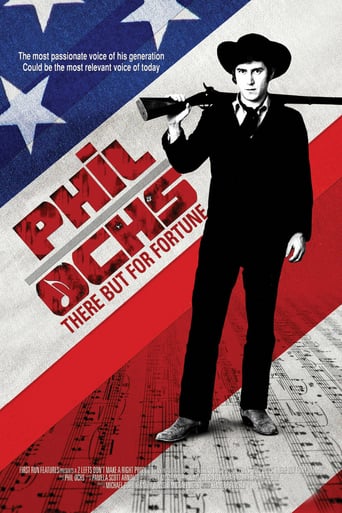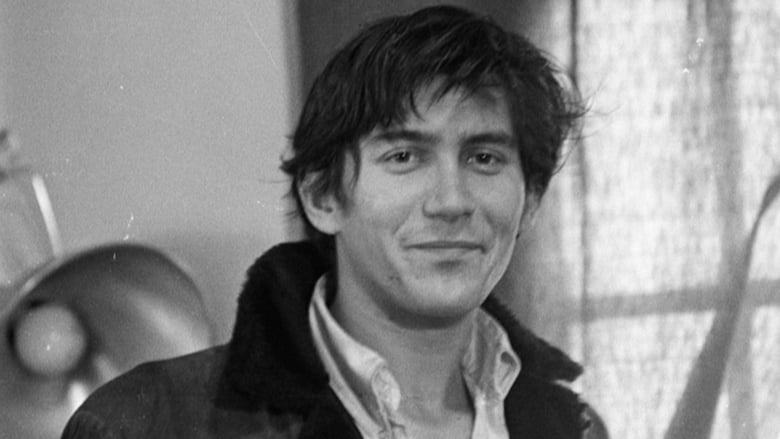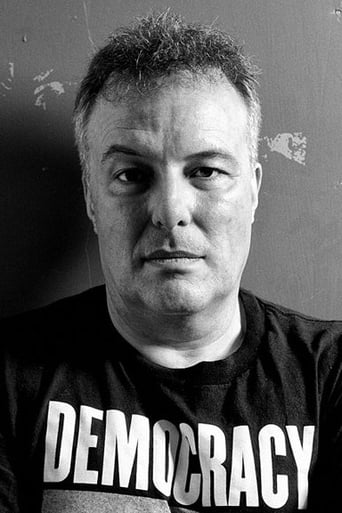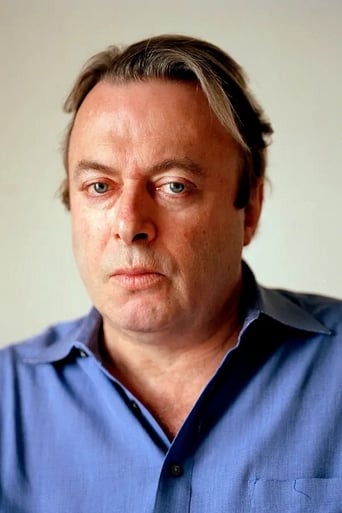

Phil Ochs: There But for Fortune (2011)
From civil rights to the anti-war movement to the struggles of workers, folksinger Phil Ochs wrote topical songs that engaged his audiences in the issues of the 1960s and 70s. In this biographical documentary, veteran director Kenneth Bowser shows how Phil's music and his fascinating life story and eventual decline into depression and suicide were intertwined with the history-making events that defined a generation. Even as his contemporaries moved into folk-rock and pop music, Phil followed his own vision, challenging himself and his listeners. Not one to pull punches, Ochs never achieved the commercial success he desperately desired. But his music remains relevant, reaching new audiences in a generation that finds his themes all too familiar.
Watch Trailer
Cast


Reviews
Phil Ochs: There But for Fortune (2010) was written and directed by Kenneth Bowser. Phil Ochs was a brilliant political singer/songwriter during the 1960's and into the 1970's. Phil wrote and sang about some of the most horrible years in U.S. history--the war in Vietnam raging, the civil rights protesters being beaten and arrested, the police riot at the 1968 Democratic Party convention, and the CIA's brutal intervention in places like Chile. My wife and I were active in the peace and justice movement, and we became very active in 1969. (We are still peace and justice activists.) The political folksingers like Pete Seeger, John Baez, and Phil Ochs provided us with inspiration, determination, and courage. Now, almost 50 years latter, most people have boiled down what we did to making the peace sign and saying "make love not war." We did those things, but we did much, much more, and we did them to the songs of the political folksingers like Phil Ochs.The film is unusual because we don't get much footage of Phil Ochs talking about his work. We hear him singing, and we get a few clips of him talking, but mostly we hear other people talking about Ochs. These include singers and activists like Erik Andersen, Joan Baez, Billy Bragg, Bob Dylan, Sean Penn, Pete Seeger, Dave Van Ronk, Tom Hayden, and Judy Henske. In addition, Phil's brother, wife, and daughter reminisce about Phil. (There's also footage of combat in Vietnam, in Chicago, and in the southern U.S.)This is an excellent movie, but a somewhat discouraging one. We in the peace and justice movement felt as if we were pushing against a solid brick wall. We couldn't bring it down. In fact, we couldn't make a dent in it. And, all the while, we knew that the FBI was watching us. (The FBI had hundreds of pages of reports on Phil Ochs.)Singers like Phil Ochs gave of themselves to help keep the peace and justice movement alive. However, he paid a price for his singing, and after a while, his situation spiraled down, out of control.We saw the movie on DVD, where it worked well. It's not a must-see movie, except for peace activists and people interested in the history of the peace movement. The film certainly validates the anger and discouragement we felt. More important, it demonstrates the uplifting quality of really great protest songs. That makes it a good movie for everyone.
I have missed hearing Phil Ochs for a long, long time. This brought back some of those amazingly political times in which he was so instrumental. No one seemed to have the complete dedication and full on driven voice for us since. He always was there when needed and he always had an intelligent and beautiful voice to say so. He fought for the disenfranchised, the downtrodden, those victimized by the government, both in the U.S. and abroad. This movie captures his unfailing work for those wonderful ideas and people he embraced. The only thing that could have improved this movie was to make it longer and with more of Phil's performances. In the end, it is a tragedy due to his bi-polarity, but thank heaven he was here for some time anyway.
This movie was a stunning and stirring tribute to two things: 1)The beloved (and neglected) musician, Phil Ochs, and 2)The oft- tributed 1960's. Weaving the topical songwriter's biography through the fascinating history of his time helps to make sense of the indelible stamp which that decade left on our souls. Appropriately, it doesn't end well, but it does capture that "we can change the world" empowerment that may presently and forever be rekindled. Here you will find beautiful music(but seldom the whole song) and filmed insights into the early Greenwich Village folk scene, the riots at the 1968 Democratic Convention, the assassination of the Kennedy's, and as Phil embraced the world-at-large, the CIA-backed coup that helped install South American dictator, Pinochet. Here is understanding for that phrase, "the personal is political and the political is personal." The real power-punch is that once you know his songs.. The themes are regrettably still relevant after 40+ years ! Sample these lyrics (from 1965), "We own half the world, Oh Say Can You See. And the name for our profits is democracy. So like it or not you will have to be free. Cause we're the cops of the world." Well, one update is necessary.. Because of those imperialistic policies we no longer own half the world. If only Phil were with us now I have no doubt he could have similarly and poetically explained the financial collapse, the tea party, Citizens United, Iraq and Afghanistan, and the Wisconsin attack on unions. His manic-depressive curse was to perceive the world through a deeply felt lens of social justice which filtered out media distortion and political complexities and distilled the truth into a tune you could hum. Many "protest singers" of the time attempted this but nobody did it better.
"There But for Fortune" is an excellent documentary on the life and career of the over-looked folk/protest singer Phil Ochs. Overshadowed by his contemporary (and idol) Bob Dylan, Phil Ochs never received his due. And this is greatly surprising since his music was more melodious and more "palatable" than Dylan's.Watching this movie, I am astounded that he never achieved greater notoriety. For someone who seemingly had everything going for him (good looks, a gorgeous dulcet voice and a rare gift for writing songs that alternated between beautiful and biting), it's amazing to me that he never became a bigger name.His songwriting was masterful, often touching upon topics of the day (e.g. "A Small Circle of Friends" being inspired by the Kitty Genovese story). His voice was haunting and beautiful. Songs such as "Changes" and "Pleasures of the Harbor" are simply exquisite. Phil Ochs spent the 1960s writing and performing protest music, much of it targeted at the Vietnam War ("The War is Over," "I Ain't Marchin' Anymore," etc.). Tragically - and ironically - upon the ending of the war, he became un-moored. Perhaps feeling that he had lost his purpose, he sank into a deep depression and, within a few years, was dead by his own hand. This is a very well put together film - including interviews with his brother and sister, his wife and daughter, and numerous friends in "the cause." And, luckily, there is a surprising amount of footage on this individual who never really reached a great measure of fame.Even I, someone who was always "into" popular music, had not become familiar with Phil Ochs until after he was gone. If you ask me, why this supremely talented individual was not a bigger name in American popular music is one of the mysteries of the ages. The producers of this film have done the viewing public a great service. It's just unfortunate that only those people who already know of Phil Ochs will likely go out and see it. On the other hand, this movie paints a portrait not only of Phil Ochs the singer, but of America in the 1960s. So, by all rights this film should have wider appeal as a piece of history, with Phil Ochs at the center of a very tumultuous period. One can only wonder in sadness what kind of music he would be writing today at the age of 70, given the fact that we find ourselves once again embroiled in another questionable war.




